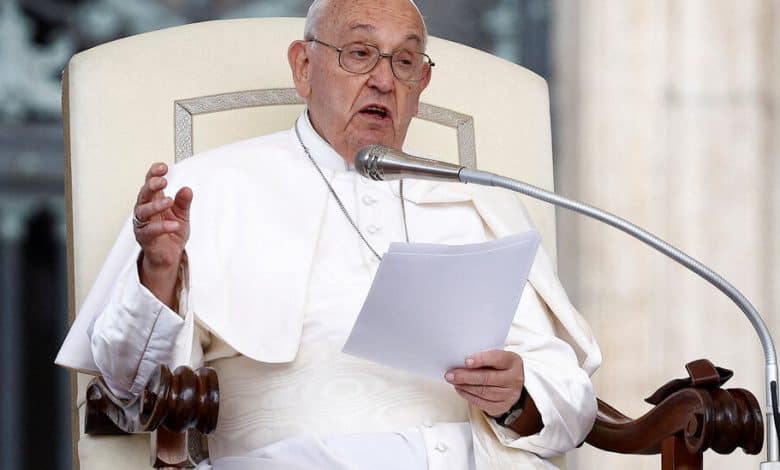Pope Issues Apology After Reports That He Used Offensive Slang Word

The Vatican said on Tuesday that Pope Francis “extends his apologies” after reports that he had used an offensive slang word referring to gay men at what was intended to be a private meeting with 250 Italian bishops last week.
Francis had been taking questions from Italian bishops on a number of issues when the question of whether or not to admit openly gay men into seminaries, or priesthood colleges, came up.
“Pope Francis is aware of articles that recently came out about a conversation, behind closed doors,” said Matteo Bruni, the press office director for the Holy See, in response to questions from reporters. “The pope never intended to offend or express himself in homophobic terms, and he extends his apologies to those who were offended by the use of a term, reported by others.”
Francis has been widely credited with urging the church to take a more welcoming approach to the L.G.B.T.Q. community, and he has delivered a mostly inclusive message.
At the start of his papacy, he said, “If a person is gay and seeks God and has good will, who am I to judge?” He also met often with gay-rights activists, and made a decision last year allowing priests to bless same-sex couples.
The opening to the L.G.B.T.Q. community has been met with a backlash. The decision to bless same-sex unions, for example, was widely criticized by bishops in conservative corners of the church, such as Africa, as they believe the practice contradicts church doctrine.
The Vatican scrambled to explain that blessings are not formal rites, and do not undercut church teaching against same-sex marriage.
At the same time, the church has remained firm in its decision not to allow openly gay men to become priests.
A document issued in 2005 under Pope Benedict XVI, Francis’s predecessor, excluded from the priesthood most gay men, with few exceptions, banning in strong and specific language candidates “who are actively homosexual, have deep-seated homosexual tendencies, or support the so-called ‘gay culture.’”
The document allowed ordination only for candidates who experienced “transitory” homosexual tendencies that were “clearly overcome” at least three years before ordination as a deacon, the last step before priesthood.
